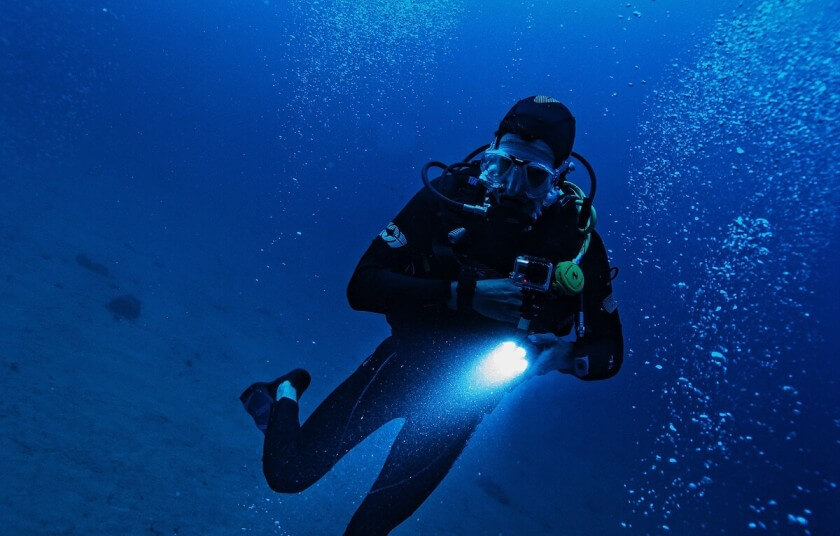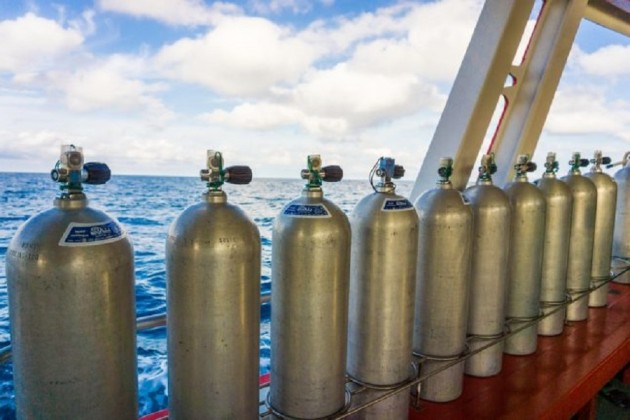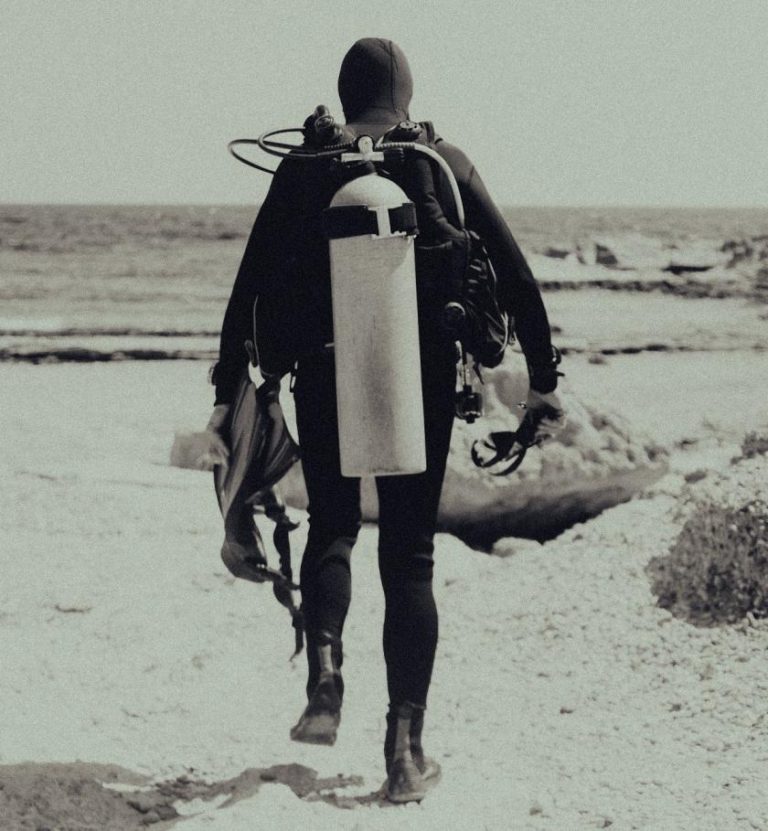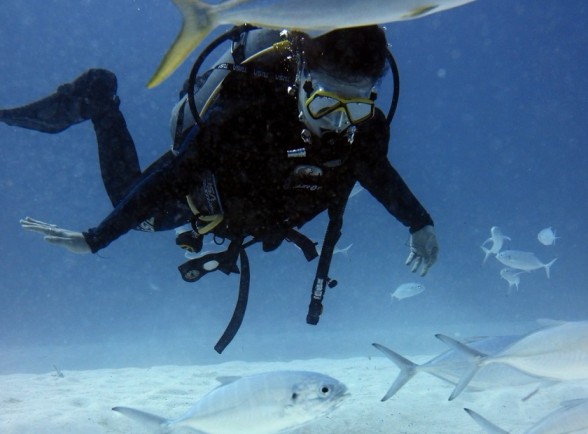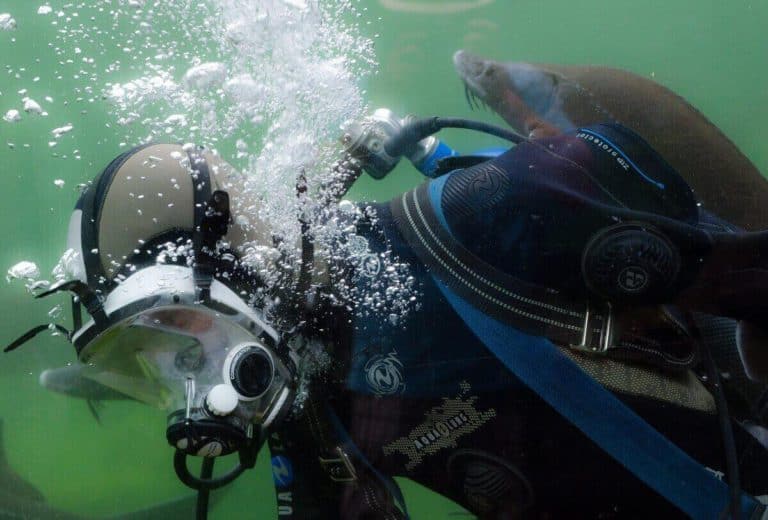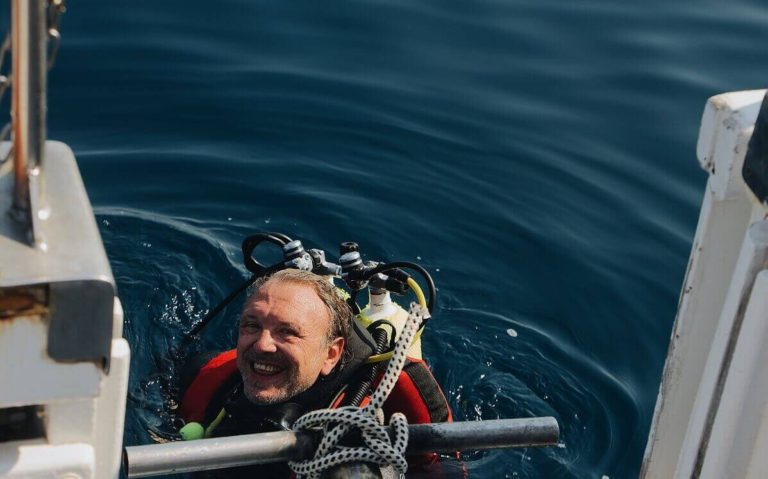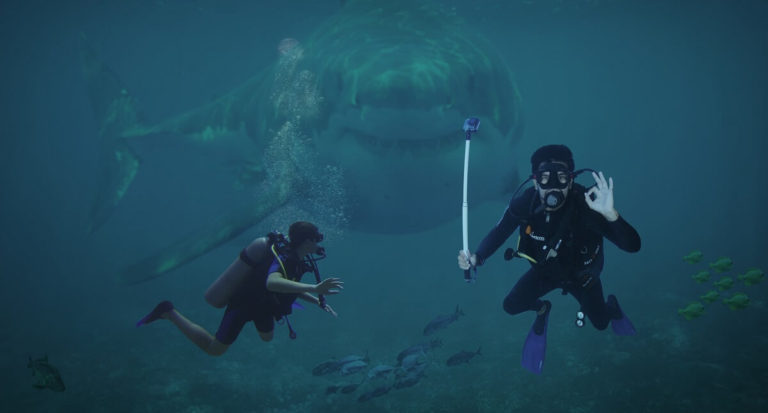Is It Illegal to Scuba Dive Alone?
Maybe you got separated from your team or dive buddy. Could be you just decided to go diving alone or you are a certified solo diver, these are among the many reasons why a diver could be spotted diving alone. Diving alone can be either a solo diver or diving alone, I will get into the definitions in a while. Whatever the reason, is it illegal to scuba dive alone?
No, it’s not illegal to scuba dive alone. The certification awarded upon completion of a diving course is proof that the diver has the necessary skills. This certification however isn’t a license that may limit divers from diving alone.
No diving police will come and arrest you for diving alone. However this doesn’t mean that you should dive alone, there are many risk factors, especially for the inexperienced diver.
In this article we’ll look into reasons why you shouldn’t scuba dive alone, the risks associated and so much more.
Let’s dive right into it!
Solo Diver vs. Diving Alone
As mentioned earlier, a diver spotted diving alone can be one of two types of lone divers a solo diver or one who is simply diving alone.
I know they just sound the same but trust me there is a huge difference.
A solo diver has taken the solo diving course, trained with certified instructors on how to identify risks and respond to them, as well as earned the solo diving certification.
Solo divers can go diving alone for multiple reasons as listed below;
- Need to explore certain parts underwater in-depth and could spend a lot of time in one area. Other divers may not be interested in spending hours in one spot, so the solo diver just decides to go alone.
- When the only solo diver available is required to go look for another solo diver
- In some cases, the solo diver may be the only one with the skills to go to certain depths.
- Solo diving removes all distractions such as looking out for your team members. Sometimes the diver has to concentrate on one task (such as underwater photography/videography) only to get it done right. By reducing distractions we are increasing attentiveness.
Diving alone on the other hand doesn’t necessarily mean the diver is a qualified solo diver.
One reason a diver could be spotted alone is that strong currents separate divers from their buddies or teams.
Sometimes the underwater currents can be very strong, fighting against the current doesn’t help at all. This could actually put you as a diver at risk if you tried to swim against the currents.
The other reason a diver can be diving alone is simply that they just decided to go on a solo dive.
Can You Dive Alone With PADI Open Water Certification?
The first certification divers receive is from diver training an agency is the Open Water Certification.
Some divers may wonder if they can dive alone once they’ve received their first scuba diving certification. After all, you have the certification and skills why not try diving alone right?
Wrong!
Unless you have the proper solo-diving skills NEVER attempt to go on a solo dive always go with a buddy or a diving team.
In some isolated scenarios, you could find yourself as the only diver around your hometown and need to log in more dives.
If there are no diving agencies or groups around you this can be quite challenging and often wonder how else you will log in more dives if not by diving alone.
In such a scenario, it would be better to first get some training on solo diving. This could mean moving to a new location for some time to acquire the skills.
As a beginner or one who is recently certified, getting more dive logs isn’t as important as your own safety.
Make the sacrifice for a few weeks or months to get the proper solo-diving training.

Is It Safe to Scuba Dive Alone
Scuba diving alone especially among beginners is highly discouraged due to the many risk factors around it.
Diving alone requires the diver to have;
- self-dependency skills
- ability to spot and respond to problems underwater
- strong mental capacity and willpower
- ability to remain calm when crisis arise
- ability to act fast and responsibly
Many beginners lack these skills or easily panic when there is a crisis.
Diving accidents happen as a result of many factors and not only one reason. Let’s say your regulator fails, you immediately go into panic mode, and next the diver makes uninformed decisions putting their life at higher risk of injury or drowning.
Now if this happens to you when diving alone, you can already picture how the events turn out.
Having a dive buddy or diving team will help you when emergencies arise during the dive lowering the risks.
Scuba diving alone as a solo diver has its share of cons but in this case, the diver has training on how to respond or how to act in a crisis.
In most cases, solo divers will manage to get out of a crisis and back to safety. Unless the emergency is health-related such as the diver getting a cardiac arrest, most solo divers can get out of the crisis.
Reasons Why Every Diver Should Train Solo Diving
According to solo diving experts, every experienced diver should take up a solo diving course not only for self-reliance but also to improve your buddy skills.
As mentioned earlier, sometimes strong currents drift you far away from your buddy or diving team. Having solo-diving experience, you can safely return to your group or to safety unlike a diver without the skills.
As a beginner, experiencing strong currents for the first time can have you worked up, have anxiety, and panic which put you at higher risk of injury.
Learning how to stay calm in these moments is very important, it also prevents energy loss trying to dive against the currents. In panic mode, we also tend to use up air rapidly and the exhaustion can lead to collapsing in water and eventually drowning.
Another reason why every diver should get a solo diver certification is to improve their diving skills which makes you a better buddy or team member.
In a crisis, while diving, everyone wants to have a diver with more skills than them such as a solo diver or rescue diver. This way you are guaranteed they know how to respond better than you do and it also increases the chances of survival.
Solo divers are also better at spotting potential problems before actually happen compared to beginner divers.
Most importantly, divers with interests in certain diver courses such as underwater videography need to have solo-diving skills.
Planing on taking up a diving course as a full-time job, you will spend a lot of time underwater and you won’t have a diving buddy at your disposal at all times.
Remember to only dive within your limits, while solo-diving skills are important, it’s not for everyone. Don’t push your body to extreme levels risking your health or life.

Conclusion: Is diving alone illegal?
Diving alone isn’t illegal but this doesn’t mean you should go scuba diving alone.
As mentioned above, diving alone puts you at higher risk especially for beginners since you lack the necessary skills to maneuver around the risks.
Keep in mind that when you go diving alone and fail to return as expected, other solo divers or rescue divers have to come and look for you and you automatically put them at risk.
Avoid going on solo dives in new locations even as a certified solo diver. You lack the understanding of the environment and can easily get lost, always go with a local diver to guide you and also look out for each other.
We’ve seen that scuba diving alone isn’t necessarily illegal and no one will arrest you for doing it. However, it does have risks associated with it and should only be done by certified solo divers.
Beginners always stick to a buddy or team diving, an extra pair of eyes, hands, equipment, and diving accessories are better than none.
Treasure your buddies and enjoy pointing out underwater stuff together. 🙂

